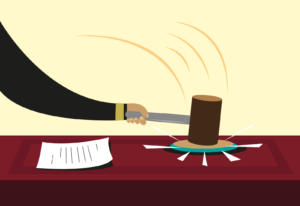Table of Contents
ToggleSettling Litigation: The Power of a Well-Crafted Agreement
Stuck in a legal battle that feels like an endless war? You’re not alone. Litigation is usually expensive, time-consuming, and emotionally draining. But there’s a way out. In most cases, settling your dispute outside of court can be the smarter option.
Here’s where a well-crafted settlement agreement comes in.
When and How to Settle a Case
If you are bogged down in litigation, it can be difficult to see through the fog of war and find solutions to resolve the conflict without going to trial. Yet in most cases, parties to litigation benefit from engaging in dispute resolution solutions before going to trial, as trials are almost invariably uncertain and expensive.
Settlement can be a powerful tool for resolving conflict. A well-crafted agreement ensures everyone involved is on the same page and can move forward with confidence. If you’re considering settling a dispute, consult with an attorney to ensure that your agreement is comprehensive and protects your interests.
At some point—usually after the discovery process is underway—the parties will typically enter into settlement negotiations of their own accord. If it appears that no effort has been made to try and settle a case, most judges will encourage the parties to work toward a settlement. The parties may elect to use an Alternative Dispute Resolution (ADR) option, such as mediation, on their own, or the court may order the parties to do so. Many courts require mediation. If a settlement is reached, the terms of the settlement are submitted to the court for approval, and the need for a trial is averted.
Good attorneys try to work with their clients to achieve a safe and lasting resolution, thereby limiting the need to fight it out until the bitter end. Sometimes these solutions happen early, but all too commonly, they present themselves just before a case is scheduled to be heard at trial or arbitration. It is generally thought that more than 90 percent of all business litigation cases settle before trial.
Settlement Agreements: The Embodiments of Resolution
Settlement agreements are the embodiments of resolution. They can provide assurances to both sides that they have been at least somewhat successful in their fight. Settlement agreements mitigate the time, costs, and emotional tolls associated with prolonged litigation, and the success of a settlement agreement depends on its quality and comprehensiveness. Creating an effective one requires understanding what must be included to safeguard the parties’ interests and resolve the dispute.
What to Include in Your Settlement Agreement
Think of a settlement agreement as a peace treaty. It should clearly define the following:
- The Parties Involved: Who’s who in this conflict? Make sure everyone involved is clearly identified.
- The Dispute: What exactly are you settling? Clearly outline the issue at hand to avoid future confusion.
- The Resolution: This is the heart of the agreement. What does each side get (or give up) to achieve compromise? This can include financial compensation, specific actions, or other forms of relief.
- Keeping it Quiet (Confidentiality): Sometimes, it’s best to keep the details of your settlement private. A confidentiality clause ensures neither party publicly discusses certain (or all) terms of the settlement agreement.
- Moving Forward Peacefully (Non-Disparagement): A non-disparagement clause discourages negative public statements that could reignite the conflict.
- Ending the Fight (Release of Claims): This clause ensures both sides waive any further claims related to the settled dispute, preventing future lawsuits over the same issue.
- Future Disagreements: Settlement agreements can even include a process for handling future disagreements that might arise, especially any disputes that stem from the settlement agreement itself. This can involve mediation, arbitration, or other methods for resolving disputes efficiently.
The Benefits of a Strong Settlement Agreement
There are many advantages to having a clear and comprehensive settlement agreement:
- Save Time and Money: Litigation can drag on for years. A settlement gets you out of court faster and reduces your legal costs.
- Preserve Relationships: Sometimes, businesses or individuals need to maintain a working relationship after a dispute. A settlement can help rebuild trust and pave the way for future collaboration.
- Confidentiality: Settlement agreements can provide for resolving issues privately, without unwanted publicity.
- Customization: You can tailor your settlement agreement to your specific situation. Just by way of one common example, if you lose a $10 million lawsuit, you must pay the $10 million almost immediately or risk your assets being seized. On the flip side, you might be able to settle for $8 million, to be paid over the next five years. No two disputes are identical, and your settlement should reflect that.
A Real-World Settlement Example
My law firm has handled dozens of ownership disputes involving companies. Most of these disputes are intense and contentious, not unlike an ugly divorce. Take, for instance, two of our clients who were locked in a bitter legal battle for over a year regarding the dissolution of their company. The mounting legal fees and personal strain were taking a toll. Fortunately, they opted for mediation, and through this process, they reached a settlement agreement dividing the company’s assets fairly and including a non-disparagement clause to protect their reputations. This solution not only saved them significant financial and emotional stress but also allowed them to move forward with their separate businesses and even maintain a civil relationship.
Conclusion
A settlement agreement can be your roadmap to ending your litigation, providing you with lasting resolution and a future free from the burdens of conflict. So, take control of your situation, and don’t fight against working towards a settlement agreement that brings closure, fosters peace, and allows all parties to move forward. The key to a successful settlement is crafting an agreement that both works for your situation, and is clear and comprehensive.























